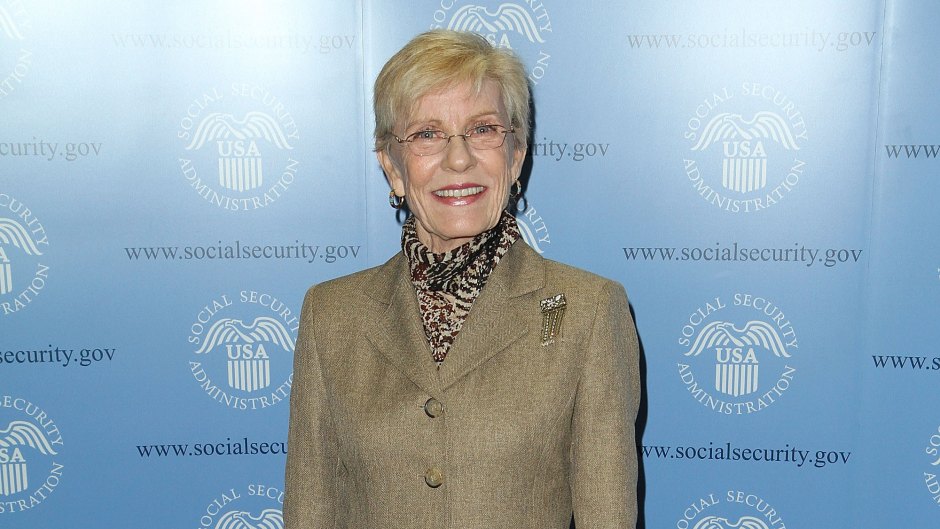
Getty Images
How Patty Duke Found ‘Normalcy’ After Long Hollywood Career and Mental Illness Battle
Reporting by Amanda Champagne-Meadows
As a kid, Mackenzie Astin grew used to sharing his mom, Patty Duke, with her admirers, but after the publication of her memoir Call Me Anna in 1987, the nature of those fan interactions changed. “After her autobiography, she became more of a mental health advocate than a professional actress,” Mack tells Closer exclusively. “People would meet her and jump into a story about how valuable her book had been to someone in their lives.”
An actor since the age of 8, Patty, who was born Anna Marie Duke, won an Oscar playing Helen Keller in 1962’s The Miracle Worker and went on to become the country’s most popular teenager on The Patty Duke Show. “She was very, very talented, but people fell in love with her because she was very lovable,” said William Schallert, who played her father on the show.
It wasn’t until Patty released her memoir that the public learned of the mistreatment and abuse she suffered at the hands of the couple who managed her career and her long struggle with severe mood swings caused by bipolar disorder. “Mostly what people like me want to find out prior to our diagnosis is, ‘Am I the only one?’” said Patty. “The good news-bad news is, ‘You’re not the only one.’”
Light in Darkness
In 1972, Patty married John Astin, best remembered by TV viewers as Gomez on The Addams Family. Together, the couple raised sons Sean, 52, and Mack, 50, as well as John’s three sons from a previous marriage. Sean and Mack would both follow in their parents’ footsteps as actors. “My mom was very, very frank about how dangerous it can be for a kid in showbiz,” explains Mack, who spent four seasons on TV’s The Facts of Life as a teen. “So we had our eyes wide open, which was a huge advantage.”
But as a parent, Patty’s then-undiagnosed disorder made her behavior unpredictable. In her manic moods, Patty was playful, fun and liked to go on extravagant spending sprees. “Christmas could be an absolute bonanza in terms of gifts,” he recalls. “She had a credit card, and she wanted to make us happy.”
On the flip side, the three-time Emmy winner would sometimes sink into a terrible depression. “I was a truly loving mom, but I didn’t have the tools to do the job,” confessed the actress, who would sometimes not be able to get out of bed for days. “Watching someone suffer so deeply that they consider ending their life is hard,” says Mack, who adds his mother’s dark moods often accompanied the completion of an acting job. “She would put all her energy into the job, but its end would be a letdown,” he explained.

His father, John, held the family together. “Beyond the shadow of a doubt, his presence in my mom’s life kept her alive and made Sean and I into well-rounded people,” Mack says. “He had the patience to help her exorcise the demons that she’d been carrying for a long time.”
A psychiatrist John found finally arrived at a diagnosis of what was then known as manic-depression in 1982. Patty began therapy and was prescribed lithium to stabilize her moods. “It was a seminal moment in her life. She had been running from this crazy thing inside her,” Mack says. “Having a name for it meant she was going to be OK.”
Although her marriage to John ended in 1985, he remained a “rock-steady” presence in all their lives. “The breakup was healthy for both of them,” says Mack.
A Peaceful Place
In 1985, Patty became the second woman elected as president of the Screen Actors Guild, but Hollywood started to feel less important after she fell in love with Michael Pearce, an Army sergeant she met on a film set. The pair wed in 1986, moved to Michael’s native Idaho, and adopted their son, Kevin, in 1988. “She ended up with her soulmate,” says Mack. “I think at that point, she was ready to have a normal life. She could go to the market, focus on meal planning, take out the trash, have coffee on the porch, and chat with her neighbors. It was an exciting time because she finally got what she always wanted: normalcy.”
Patty remained an outspoken mental health advocate and took periodic acting jobs until her passing at age 69 in 2016. She also wrote two more books, including 1992’s A Brilliant Madness: Living With Manic-Depressive Illness.
“Her greatest accomplishment was the amount of awareness she raised,” Mack says. “You know, an Academy Award is nice, the Emmys and Golden Globes are nice, but saving people’s lives is much more meaningful than any award. There are people alive today that would not be here had my mom not told her whole story. That’s worth a lot more than a trophy, and it doesn’t take up space on your mantel.”







































